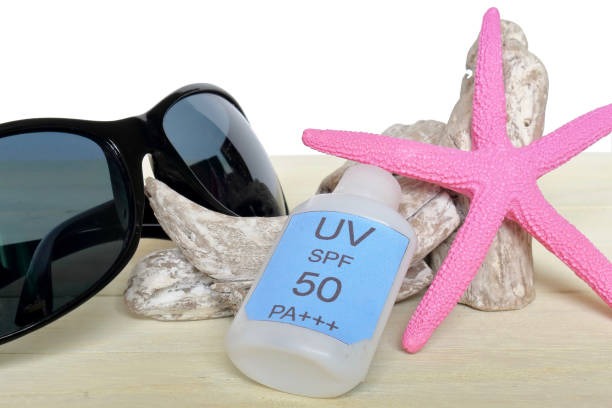What is anti reflective coating on glasses? Comprehensive guide
By Vooglam
Share this article
What are anti-reflective coatings on glasses?
Do you suffer from blurred vision due to lens reflection when wearing glasses? In fact, the simplest and most effective way is to use glasses with antireflection coating. So what is an antireflection coating on glasses? How does it clear our vision? The following section will introduce the advantages and disadvantages of antireflection-coated glasses as well as precautions when purchasing and using them. This will be helpful if you have experienced trouble with lens reflections.
Anti-reflective coating, often abbreviated as AR coating, is a thin layer applied to the surface of eyeglass lenses to reduce light reflection. It is about 100-200 NM thick and is often achieved through physical bonding technology. Anti-reflective coatings help improve visual clarity and comfort by minimizing the amount of light reflected by the lens.

How does anti-reflective coating work?
When natural light is applied to the surface of glasses, part of it will be reflected, and the remaining part will enter the interior of the lens. The surface of the lens treated with anti-reflective coating is smoother. It has less reflectivity when light enters and exits the coating, significantly reducing light reflection on the lens surface. At the same time, the coating is skinny, which helps to improve the perspective quality and light transmittance and enhance the visual experience.

Advantages of anti-reflective coating glasses
Reduce glare and improve visual quality: Anti-reflective coating can significantly reduce light reflection on the lens surface, effectively reducing glare. This allows you to have clear vision while wearing glasses during outdoor activities or under strong sunlight, and the visual quality will be higher. If you want to get a better visual experience, you can add photochromic lenses to the lenses at the same time.
Easy-to-clean properties: Fingerprints and other dirt are not easy to adhere to the anti-reflective coating surface, making the lens easier to clean. At the same time, additional waterproof and oil stain functions can be added during customization. At the same time, the anti-reflective coating on glasses can also protect the lenses from scratches.

Disadvantages of anti-reflective coating on glasses
The effectiveness and lifespan of the coating will be affected by external factors: the quality of the coating may be affected by environmental factors such as temperature and humidity, resulting in reduced durability. In an environment of high temperature and humidity, the coating may wear out and wear out more quickly, reducing its service life. The anti-reflective effect of glasses may diminish over time.
Repairing the coating is difficult: Although it is possible to add an anti-scratch coating to the lens, the coating is only a thin layer after all. Once the anti-reflective coating on eyeglasses is scratched or damaged, repairing it is more difficult than replacing the entire lens. Of course, there are some tricks you can try to deal with the following minor scratches. But if you are repairing serious lens scratches, you will need to invest more time and money.

Factors affecting the price of glasses with anti-reflective coating
The price of anti-reflective coating glasses can vary depending on a variety of factors, including the complexity of the prescription, the quality of the coating, and the brand. But in general, anti-reflective coatings are relatively cheap to make, making them an affordable lens option offered by many eyewear brands, such as Vooglam. Therefore, the price of glasses with anti-reflective coatings is often more acceptable to people.
How to care for anti-reflective coating glasses?
After understanding what anti-reflective coating on glasses is and its advantages and disadvantages, we need to know how to perform daily maintenance on glasses. Caring for anti-reflective coating glasses can help extend their life and ensure visual quality. Here are some maintenance suggestions:
- • Clean regularly with a microfiber cloth and lens cleaner;
- • When not wearing, store in a box or soft glasses cloth to prevent scratching of the lens coating.
- • Avoid touching the lenses directly with your hands, or protect the glasses from direct sunlight;
- • Avoid contact of glasses with chemicals, such as corrosive solvents or cosmetics. These substances may cause damage to the coating.

Anti-reflective coating is a worthwhile investment
Although most people will not experience allergic reactions when wearing anti-reflective coated glasses, people with a history of allergies may be allergic to certain chemicals in the coating. Therefore, it is necessary to receive the guidance of a professional doctor to avoid eye discomfort when wearing it.
But overall, anti-reflective coatings on glasses offer many benefits, from enhanced visual clarity to aesthetics and ease of cleaning. And the price isn't much higher than regular lenses, so anti-reflective coatings are certainly a worthwhile investment. At the same time, the best way to extend the service life of lenses is to regularly maintain your glasses and establish awareness of protecting them. So, are you ready to get clarity with anti-reflective coated glasses?

Vooglam Blog
Vooglam blog shares professional knowledge about eyeglass frames, lenses, etc., and provides help when purchasing and using eyewear products. At the same time, Vooglam focuses on fashion glasses to interpret the trend of glasses for you.
Top hits
Trending Now
 $34.99
$34.99 $26.99
$26.99 $27.99$34.99
$27.99$34.99 $24.49$34.99
$24.49$34.99



































